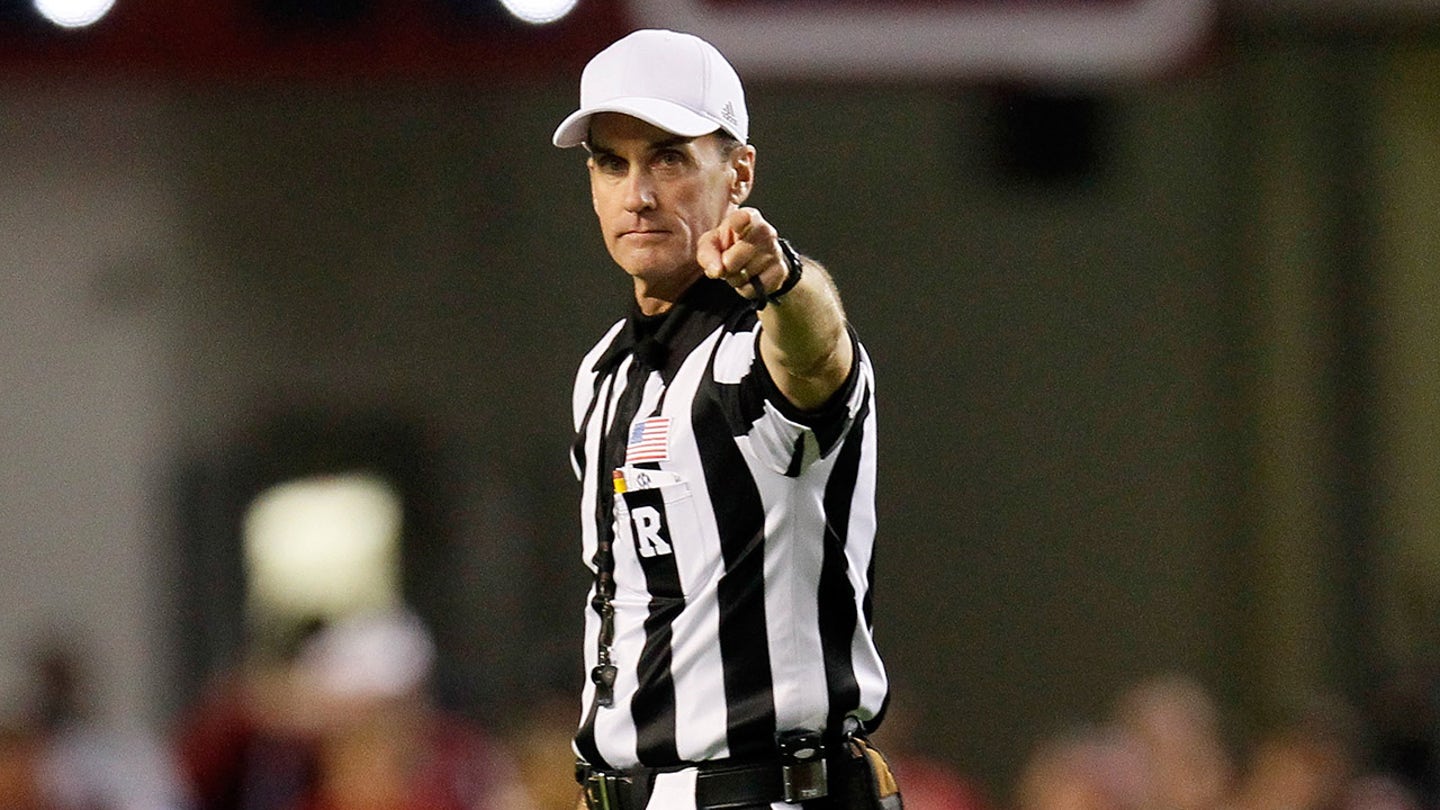
Shai Gilgeous-Alexander drops 55 in second-straight double OT win as OKC Thunder outlast Indiana Pacers in NBA Finals rematch
Entities mentioned:
- Shai Gilgeous-Alexander: Competitive spirit, Determination, Professional pride
- Oklahoma City Thunder: Ambition, Competitive spirit, Pride
- Indiana Pacers: Competitive spirit, Determination, Revenge
- Rick Carlisle: Indignation, Competitive spirit, Justice
- Steph Curry: Competitive spirit, Professional pride, Legacy
- Aaron Gordon: Competitive spirit, Recognition, Self-respect
Article Assessment:
Credibility Score: 85/100
Bias Rating: 50/100 (Center)
Sentiment Score: 75/100
Authoritarianism Risk: 20/100 (Strongly Democratic)
Bias Analysis:
The article presents a balanced view of both teams' performances, giving credit where it's due. It includes direct quotes from multiple sources, providing context and perspective from different sides.
Key metric: NBA Team Performance
Let me tell you something - this game was an ABSOLUTE SLUGFEST! The Thunder and Pacers went toe-to-toe in a championship rematch that had more twists and turns than a roller coaster! Shai Gilgeous-Alexander stepped up to the plate like a true MVP, dropping a MIND-BLOWING 55 points to lead his team to victory. This guy's got ice in his veins, folks! But don't count out the Pacers - they showed the heart of a champion, fighting back time and time again. This game had more overtime than a factory worker pulling double shifts! And let's not forget the controversy in the final seconds - that timeout call was like a Hail Mary pass that actually connected! Meanwhile, over in the Warriors-Nuggets game, we saw a three-point shootout that would make a sharp-shooter blush. Curry and Gordon were launching bombs like it was the Fourth of July! This is the kind of basketball that separates the contenders from the pretenders, folks. These teams are showing a championship mentality right out of the gate!

Ex-NFL referee blasts SEC after longtime official Ken Williamson is reportedly permanently benched
Entities mentioned:
- Ken Williamson: Professional pride, Duty, Recognition
- Southeastern Conference (SEC): Competitive spirit, Control, Integrity
- Terry McAulay: Righteousness, Indignation, Professional pride
Article Assessment:
Credibility Score: 70/100
Bias Rating: 50/100 (Center)
Sentiment Score: 30/100
Authoritarianism Risk: 40/100 (Generally Democratic)
Bias Analysis:
The article presents multiple viewpoints, including the SEC's actions and criticism from a former NFL referee. It provides context and background, maintaining a relatively neutral stance on the issue.
Key metric: NCAA Football Officiating Quality
Let me tell you something - this story is a GAME-CHANGER in the world of college football officiating! The SEC has just made a FOURTH QUARTER MOVE by benching veteran referee Ken Williamson after a string of controversial calls. This is like pulling your star quarterback in the final minutes of a championship game! Williamson, a seasoned player with decades on the field, has been hit with a red card that could end his career. The SEC is playing HARDBALL, folks, showing they're not afraid to make tough calls when the integrity of the game is on the line. But hold on to your helmets - former NFL ref Terry McAulay is firing back like a linebacker blitzing the quarterback! He's calling this move INSANE and throwing a challenge flag on the SEC's decision. This is turning into a real SLUGFEST between officiating veterans and conference brass. I'm telling you right now, this could change the whole playbook for how we handle referee performance in college sports!

Chauncey Billups mum as he leaves courthouse following arrest in widespread FBI probe
Entities mentioned:
- Terry Rozier: Self-preservation, Justice, Pride
- James Trusty: Professional pride, Justice, Indignation
- FBI: Justice, Control, Recognition
- NBA: Professional pride, Integrity, Control
Article Assessment:
Credibility Score: 65/100
Bias Rating: 55/100 (Center)
Sentiment Score: 30/100
Authoritarianism Risk: 45/100 (Mixed/Neutral)
Bias Analysis:
The article presents multiple perspectives, including statements from Rozier's lawyer and the NBA. While it leans slightly towards Rozier's defense, it also includes details about the investigation and allegations.
Key metric: NBA Player Integrity
Ladies and gentlemen, we've got a FULL COURT PRESS situation here! The FBI is playing hardball, coming out of nowhere with a BLITZ on Terry Rozier and other sports figures. But let me tell you something - Rozier's legal team is showing some SERIOUS DEFENSIVE SKILLS, calling out the Feds for what they see as an unnecessary SLAM DUNK attempt. This is turning into a real GRUDGE MATCH, folks! The NBA had already cleared Rozier, thinking they'd made the GAME-WINNING SHOT, but now the Feds are forcing OVERTIME. It's looking like we're headed for a LEGAL SHOWDOWN that'll test everyone's ENDURANCE and TEAMWORK. Rozier claims he's not afraid of a fight, so strap in - we might be in for a SEVEN-GAME SERIES in the courtroom!

NBA player Terry Rozier's lawyer slams FBI after arrest
Entities mentioned:
- Terry Rozier: Self-preservation, Justice, Competitive spirit
- James Trusty: Professional pride, Righteousness, Indignation
- FBI: Control, Recognition, Justice
- NBA: Integrity, Professional pride, Control
Article Assessment:
Credibility Score: 65/100
Bias Rating: 55/100 (Center)
Sentiment Score: 30/100
Authoritarianism Risk: 35/100 (Generally Democratic)
Bias Analysis:
The article presents multiple perspectives, including statements from Rozier's lawyer and the NBA. It maintains a relatively neutral tone, providing background information and context without overtly favoring any side.
Key metric: Professional Sports Integrity
Let me tell you something, folks - this is a FOURTH QUARTER SHOWDOWN between the FBI and the NBA! The feds are trying to pull off a full-court press on Terry Rozier, but his legal team is playing TOUGH DEFENSE. It's like we're watching a high-stakes game of cat and mouse, with the FBI going for the SLAM DUNK arrest while Rozier's lawyer is calling for a TECHNICAL FOUL on their tactics. The NBA thought they had cleared the court, but now we're in SUDDEN DEATH OVERTIME as federal prosecutors try to revive what they see as a game-changing play. This is the kind of off-court drama that can make or break careers, folks! Rozier's team is claiming it's all a FOUL PLAY, but the feds are determined to take this case into the ENDZONE. It's going to be a nail-biter right down to the final buzzer!

Tom Izzo rips NCAA for 'ridiculous' decision to allow NBA G Leaguers to play college ball: 'Got to regroup'
Entities mentioned:
- Tom Izzo: Righteousness, Professional pride, Indignation
- NCAA: Fear, Self-preservation, Control
- Thierry Darlan: Ambition, Competitive spirit
- London Johnson: Ambition, Competitive spirit
Article Assessment:
Credibility Score: 75/100
Bias Rating: 55/100 (Center)
Sentiment Score: 25/100
Authoritarianism Risk: 35/100 (Generally Democratic)
Bias Analysis:
The article presents Izzo's perspective prominently but includes context on the NCAA's decision. It balances criticism with factual reporting on the rule change and its effects.
Key metric: NCAA Basketball Competitive Balance
Let me tell you something, folks - this is a GAME-CHANGING play by the NCAA that's sending shockwaves through the college basketball world! Coach Izzo is coming out swinging like a heavyweight champ, calling out the NCAA's decision to let G League players step onto the college court. It's like allowing pro athletes to compete in the Olympics - it completely shifts the competitive landscape! The NCAA is playing defense, trying to avoid lawsuits, but they're leaving their own recruits wide open for a brutal pick-and-roll. Izzo's not pulling any punches, folks. He's charging down the court, calling for a full-court press on these rule changes. This could be a major turnover for college basketball as we know it!

Controversial former NFL lineman rips Dolphins amid poor start
Entities mentioned:
- Richie Incognito: Indignation, Righteousness, Professional pride
- Mike McDaniel: Self-preservation, Determination, Control
- Tua Tagovailoa: Self-preservation, Competitive spirit, Obligation
- Miami Dolphins: Competitive spirit, Pride, Ambition
- Stephen Ross: Legacy, Pride, Control
- Chris Grier: Self-preservation, Professional pride, Control
Article Assessment:
Credibility Score: 55/100
Bias Rating: 55/100 (Center)
Sentiment Score: 20/100
Authoritarianism Risk: 30/100 (Generally Democratic)
Bias Analysis:
The article presents multiple viewpoints, including critical ones, but relies heavily on a controversial former player's opinions. It balances team performance facts with subjective commentary.
Key metric: NFL Team Performance
Let me tell you something, folks - this is a FOURTH QUARTER DISASTER for the Miami Dolphins! They're fumbling the ball on their own 1-yard line and the clock is ticking down! Incognito is coming off the bench like a heat-seeking missile, absolutely BLASTING his former team! Tua's throwing more picks than a lumberjack convention, and Coach McDaniel's playbook looks like it was written by a Pop Warner reject! This is RIDICULOUS! The Dolphins' locker room is imploding faster than a house of cards in a hurricane, and let me tell you, Stephen Ross needs to suit up and get in the game before this franchise sinks deeper than the Mariana Trench! It's crunch time, and right now, the Dolphins are playing like they're stuck in quicksand with lead cleats!

NBA Commissioner Adam Silver says WNBA players will get ‘big’ pay increase in new collective bargaining agreement
Entities mentioned:
- Adam Silver: Professional pride, Duty, Influence
- WNBA Players: Justice, Recognition, Self-respect
- Cathy Engelbert: Determination, Professional pride, Duty
- WNBPA: Justice, Competitive spirit, Indignation
- Napheesa Collier: Moral outrage, Justice, Competitive spirit
Article Assessment:
Credibility Score: 75/100
Bias Rating: 45/100 (Center)
Sentiment Score: 55/100
Authoritarianism Risk: 20/100 (Strongly Democratic)
Bias Analysis:
The article presents both league and player perspectives, showing a relatively balanced approach. While it highlights player grievances, it also includes statements from league leadership, maintaining a centrist stance.
Key metric: WNBA Player Salaries
Let me tell you something, folks - this is a GAME-CHANGING play in the world of women's basketball! The WNBA players have been in the trenches, fighting for their fair share of the pie, and now it looks like they're about to score BIG! Commissioner Silver is stepping up to the plate, promising a 'big increase' in this new CBA. But make no mistake, this isn't just about dollars and cents - this is about RESPECT on the court of public opinion! The WNBA has been hitting nothing but net lately, with franchises skyrocketing in value faster than a Caitlin Clark three-pointer. But the players? They've been stuck on the bench when it comes to compensation. Now, it's crunch time, and the players are showing that championship mentality, demanding what they're worth. The WNBPA is playing full-court press on Silver, calling him out for not wanting to 'share'. This is a pivotal moment, folks - we're in the fourth quarter of negotiations, and every move counts. Will the league step up and deliver a slam dunk for pay equity, or will they fumble the ball? I'm telling you right now, the whole sports world is watching this play unfold!

New York Giants QB Russell Wilson labels former coach Sean Payton ‘classless’ after post-game comments
Entities mentioned:
- Russell Wilson: Pride, Self-respect, Indignation
- Sean Payton: Competitive spirit, Control, Professional pride
- New York Giants: Competitive spirit, Determination, Professional pride
- Denver Broncos: Competitive spirit, Ambition, Control
Article Assessment:
Credibility Score: 75/100
Bias Rating: 50/100 (Center)
Sentiment Score: 30/100
Authoritarianism Risk: 20/100 (Strongly Democratic)
Bias Analysis:
The article presents both sides of the conflict, quoting both Wilson and Payton directly. It provides context for their history and the reasons behind their tension, maintaining a neutral stance.
Key metric: NFL Team Performance
Let me tell you something, folks - this is a FOURTH QUARTER SHOWDOWN between two heavyweight competitors! Russell Wilson is coming out swinging, throwing haymakers at his former coach Sean Payton. It's like we're watching a boxing match unfold right before our eyes! Wilson's calling Payton 'classless' is a direct shot, a verbal tackle if you will. And Payton? He's playing defense, trying to justify his team's moves like a coach explaining a controversial play call. This is the kind of off-field drama that can make or break a team's season! The Giants are trying to find their rhythm with a rookie QB, while the Broncos are desperately trying to prove they made the right call in cutting Wilson. It's a high-stakes game of chess, and every move could be the difference between victory and defeat. I'm telling you right now, this kind of tension could be the spark that ignites a fire under both teams - or it could be the distraction that costs them the season. It's anyone's game at this point!

Tel Aviv soccer derby canceled by police due to ‘violent riots’
Entities mentioned:
- Hapoel Tel Aviv: Competitive spirit, Pride, Indignation
- Maccabi Tel Aviv: Competitive spirit, Pride, Self-preservation
- Israel Police: Control, Security, Duty
- West Midlands Police: Security, Control, Wariness
- Keir Starmer: Justice, Righteousness, Duty
Article Assessment:
Credibility Score: 75/100
Bias Rating: 50/100 (Center)
Sentiment Score: 25/100
Authoritarianism Risk: 40/100 (Generally Democratic)
Bias Analysis:
The article presents multiple perspectives, including police statements and team responses. It provides context with previous incidents, maintaining a balanced approach to the situation.
Key metric: Public Safety at Sporting Events
Let me tell you something, folks - this is RIDICULOUS! The Tel Aviv derby just got red-carded before the opening whistle! We're talking about a championship mentality clash between Hapoel and Maccabi that turned into an all-out brawl in the stands! The police came in like a defensive line, but instead of containing the play, they shut down the whole stadium! This is a GAME-CHANGING move that's gonna echo through the league. Now, you've got Hapoel crying foul, saying the cops were suited up for war, not a sporting event. Talk about unnecessary roughness! And let's not forget, Maccabi's already benched for their away game against Aston Villa. These teams are facing a serious penalty situation that could affect their whole season. I'm telling you right now, this is fourth quarter, do-or-die time for soccer safety in Israel. The league needs to step up to the plate and show some real coaching, or we might see more games called on account of fan misconduct. This is a pivotal moment, folks - will they drop the ball or score a game-winning touchdown for public safety?

San Jose Sharks apologize for ‘offensively worded message’ displayed during Hispanic Heritage Night
Entities mentioned:
- San Jose Sharks: Duty, Loyalty, Professional pride
- Immigration and Customs Enforcement (ICE): Control, Duty, Security
- Jessica Clark: Moral outrage, Loyalty, Indignation
- Sharks Sports & Entertainment: Self-preservation, Obligation, Unity
Article Assessment:
Credibility Score: 75/100
Bias Rating: 45/100 (Center)
Sentiment Score: 25/100
Authoritarianism Risk: 20/100 (Strongly Democratic)
Bias Analysis:
The article presents a balanced view of the incident, including the team's apology and fan reactions. It doesn't lean heavily towards criticizing or defending the team, maintaining a neutral stance.
Key metric: Public Perception of Professional Sports Teams
Let me tell you something - this is a MASSIVE FUMBLE by the San Jose Sharks! They've skated right into a PR nightmare that's gonna take some serious overtime to fix. The team was supposed to be celebrating Hispanic Heritage Night, but instead, they've scored an OWN GOAL with that offensive scoreboard message! This is the kind of unforced error that can bench a franchise's reputation faster than you can say 'penalty box.' The Sharks' front office is now in full defensive mode, trying to clear the puck out of their zone and regain control of the narrative. But I'm telling you right now, they're gonna need a hat trick of apologies, investigations, and community outreach to get back in the good graces of their fans. This is a critical moment where the Sharks need to show they've got that championship mentality off the ice as well as on it. They need to step up to the plate and knock this apology out of the park, or they risk losing the home-ice advantage they've built with their Hispanic fanbase. It's crunch time, folks, and all eyes are on the Sharks to see if they can pull off a fourth-quarter comeback in the court of public opinion!